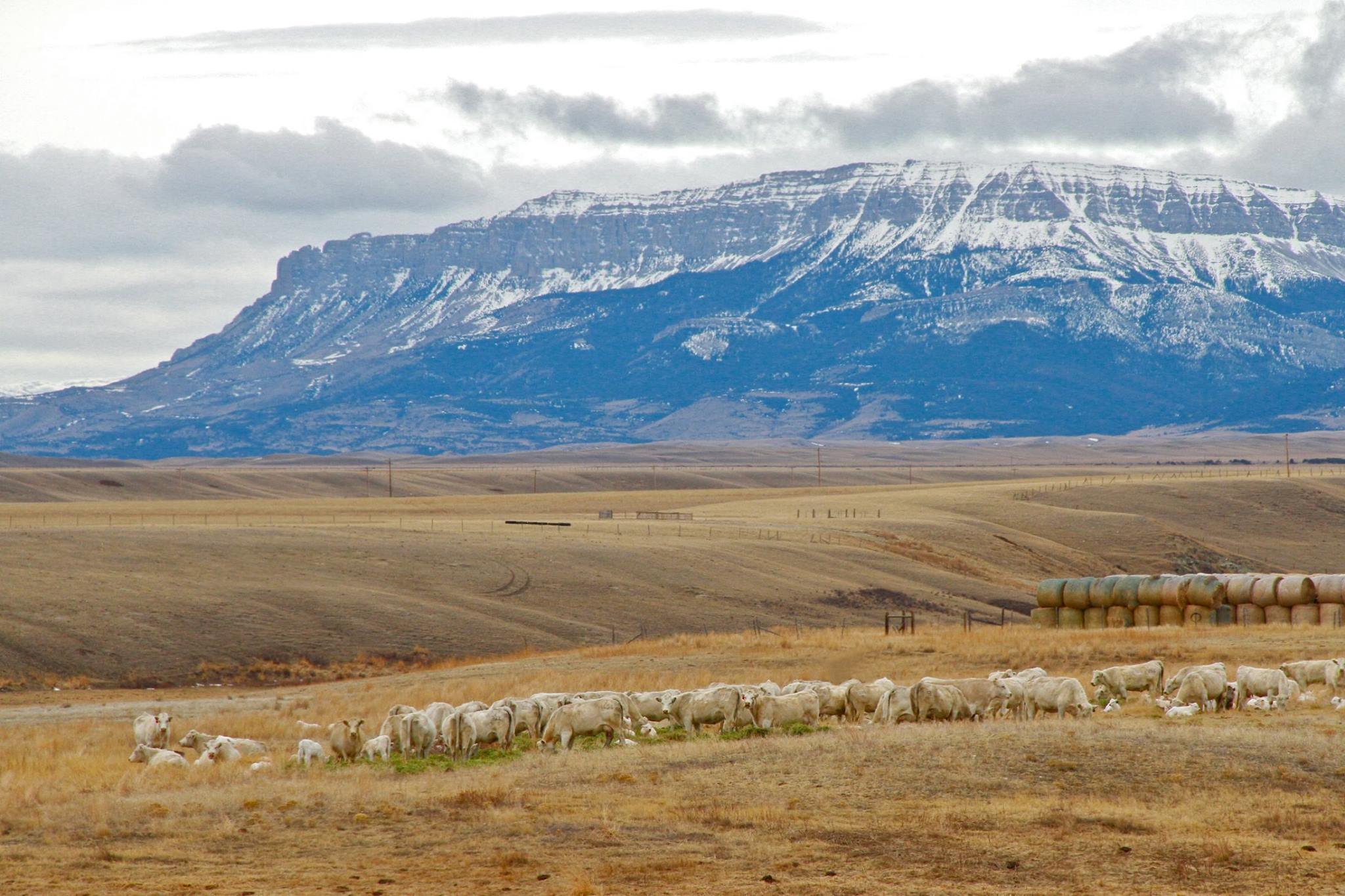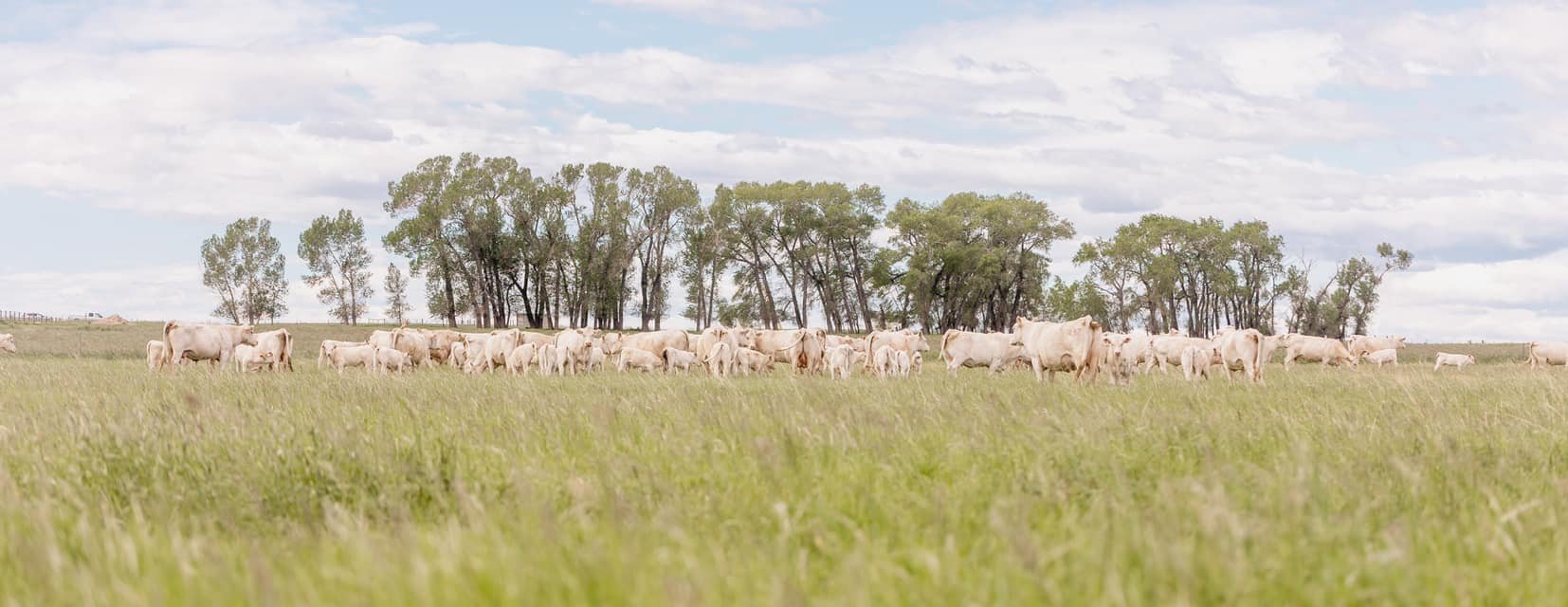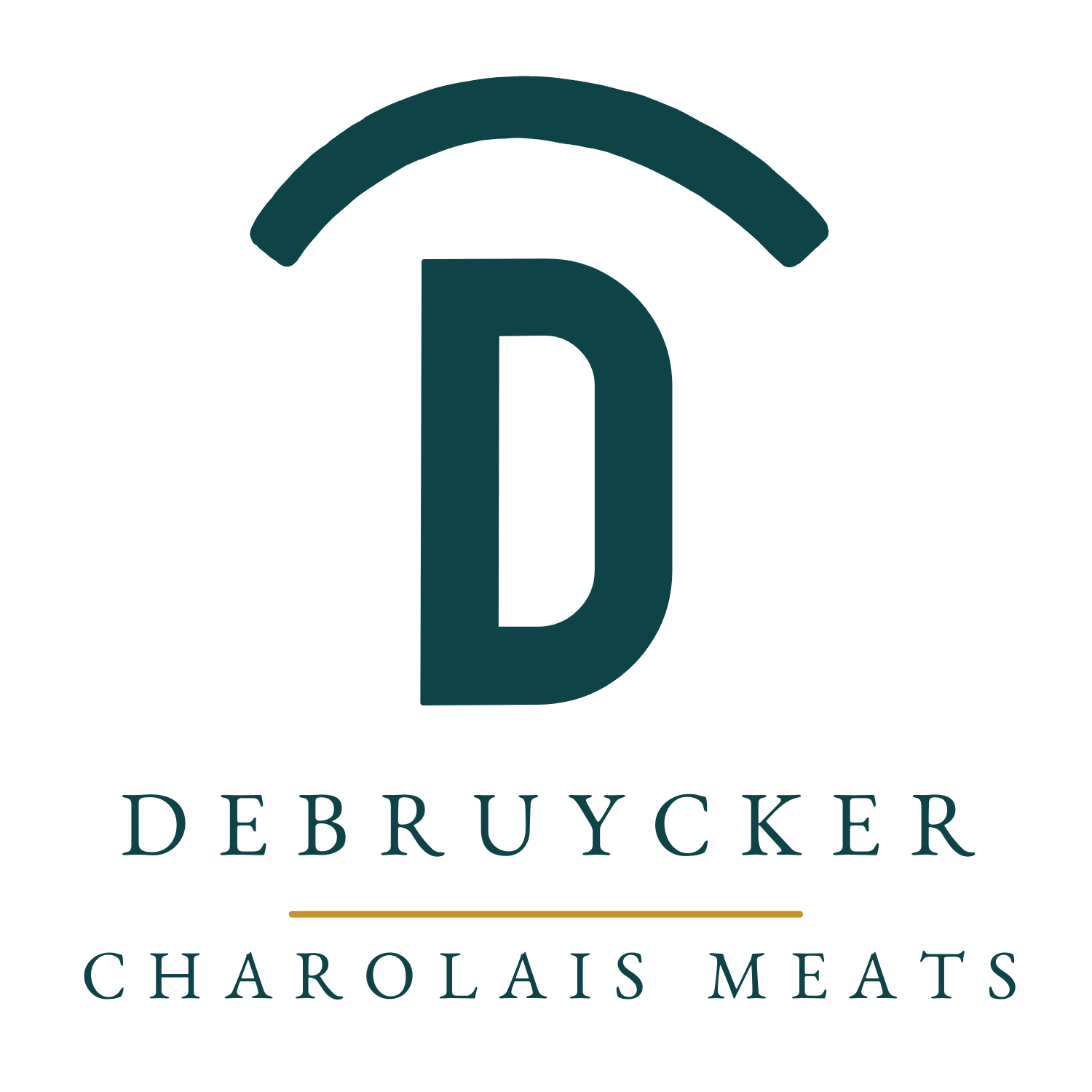
There are just some stories that are so big, so enterprising , so quintessentially American they become legendary with time.
Lloyd DeBruycker
-

Lloyd was born on Dec. 1, 1933, in Great Falls to immigrant parents, Achiel and Rose DeBruycker, who came from Belgium and Italy, respectively, to find their fortune in the American West. They operated a small grain farm and cattle ranch in rural Teton County south of Collins and west of Dutton. Lloyd was born with a heart murmur, and his parents were told he likely would not live past age 12, but he turned out to be heartier than predicted.
-
Lloyd was one of four brothers who grew up on the farm, learning to coax crops out of the dryland fields, to ride horses and to raise cattle. Lloyd attended the Collins Grade School, where his teacher skipped him from sixth grade to eighth grade. He liked to say he graduated second in his class, and then would laughingly note, there were only two of them. Not fond of school, Lloyd didn’t go to Dutton High School until his sophomore year. He then graduated in 1950 as the salutatorian of his class.
-

His Catholic parents sent him to Carroll College in Helena at 16 years old to become a priest. He, however, had other plans, and as he told it, he went in one door and out the other. While he didn’t earn a degree, he liked to tell people that he “completed college” as a 16-year-old.
Lloyd returned to Dutton, where he worked on the farm with his father and brothers and did odd jobs, putting together machinery, working on other area farms, doing carpentry and sending out roots in the Dutton community as he and his brothers purchased farmland.

Lloyd and Jane
-

At a Dutton High School ball game, Lloyd met a pretty little Minnesota girl, Jane Clemenson, who came to school there in her sophomore year. While there were lots of boys vying for her attention, Lloyd jumped to the front of the line, and the two were married on July 2, 1954, in the Dutton Lutheran Church, starting a grand partnership that would span 67 years, seven children and the building of a nationally and internationally respected Charolais cattle operation.
-
-

-
They made their home initially in a small house in Dutton as Lloyd worked at local elevators and continued to farm and ranch with his brother Roger. In 1963, as drought wreaked havoc on area farms, with the help of Lloyd’s dad, they had the opportunity to purchase a 600-acre farm from Dave McClellan. They moved into a big house on the farm in July of 1963, and began raising grain, pigs, cattle and kids and eventually built DeBruycker Charolais
Building the Business: Think Big and Act Decisively!
-
Lloyd lived by the mantra of thinking big and acting decisively.
He was a bigger than life guy, who lived his life by the mantra of think big, always move forward, always improve, always expand. His passions in life were family, cattle and horses, in that order. He never rested on his laurels and he never coasted.
-
The Cattle business is a high risk venture.
One of Lloyd’s friends had asked him how he handles such a high risk business Lloyd told him, “I left a $400 a month job at an elevator to do this, and I expect I can get my old job back if this doesn’t work out.”
When the cattle market was a wreck, people would ask Lloyd how he could sleep at night. He would laugh and say, “I sleep like a baby … I wake up every two hours and cry.”
-

In the 1960s and 1970s, Lloyd was instrumental in importing different breeds into the United States. He along with many other cattlemen at that time experimented with many different breeds such as Chiania, Maine Anjou and Simmental. During this time, though, Lloyd and Jane never strayed too far from Charolais as they could tell this was the breed for them because of the economic benefits commercial cattlemen would receive from this breed.
-

In 1972, Lloyd became one of seven main producers who formed a new feedlot operation north of Choteau called North Montana Feeders, giving local producers a place to finish calves and a place for DeBruycker Charolais to feed thousands of their bull customers’ calves each year.

Lloyd was never shy about promoting the quality of cattle he and Jane were raising.
-

Dad brought his vision and his drive for innovation to the Charolais cattle business with a vengeance. Lloyd was the first to use a lease bull program to increase the use of DeBruycker Charolais bulls. Both the feedlot and the lease program were born in the 1970s, but they are still around today, just part of the legacy Lloyd and Jane built.
-

Jane and her Charolais
-

In 1974, Lloyd and Jane took one of their bulls, Banmark to the Denver Stock Show. The sales manager asked Dad, “What’s Bamark’s show record.” Dad (knowing the bull had never been shown before), said truthfully, “He’s undefeated.” That response got Bamark into the sale. It turned out that Lloyd and Jane’s one-quarter interest of semen in that bull grossed more revenue at $50,000 than the rest of the entire sale.
-

Bamark, the Legend
Agricultural Trailblazer
-

An agricultural innovator his whole life, Lloyd wasn’t satisfied with the Hereford cattle his dad raised. In 1958, he purchased his first Charolais bull and used it to cross-breed their commercial cows. Lloyd saw the tremendous gain in red meat production and the incredible enhancement in the quality of the beef with the Charolais bull.
In 1963 Lloyd and Jane purchased 12 registered Charolais heifers and in 1964 they added a purebred Charolais bull, Amigos Pride. DeBruycker Charolais was officially born.
-

Through the 1970s into the 2000s, Lloyd focused on building DeBruycker Charolais into a world-respected registered cattle operation. Working with his wife and their children, he sold cattle to producers from Canada to Japan and from Mexico to South Korea.
In 1983, he loaded a 747 jet with 441 head of Charolais-cross calves that were flown to Korea from Holman Aviation at the Great Falls International Airport. He was one of the founding members of the Herd Improvement Test at Stanford, focusing his efforts at selecting bulls with the best breeding traits.
-

Most of Lloyd’s life revolved around the annual bull sales. He oversaw the first one on April 1, 1985, at Joe and Cathy’s place. He sold 224 head of registered bulls that day. Today, there are DeBruycker Charolais genetics throughout the world.
One of his bull customers told us after he had passed, “Lloyd was incredible for me when I first got into cattle. I learned more about cattle from him in half an hour than I could have in days from anyone else.”
-

Lloyd truly understood what the beef cattle industry was about and certainly put his bull customers first in wanting them to be successful.
“Lloyd’s impact on the breed is significant,” said David Hobbs, the director of activities for the AICA and manager of the Charolais Journal, the breed publication.
Hobbs said that DeBruycker Charolais bulls and cows are found worldwide, and the ranch’s LHD Cigar E46 bull has more than 4,000 progeny in the AICA system. “The LHD brand, in my mind, is a household name not only in the Charolais beef industry, but also in the commercial beef cattle industry across the country and North America,” Hobbs said.
Farming, Ranching, Family and Risks
-

Lloyd was a consummate farmer, who loved running the combine at harvest time as well as a dedicated cattle breeder.
Lloyd was also known for being a great judge of cattle and horses. He said he had “the shepherd’s eye” for evaluating livestock conformity, and he was a valued judge for many 4-H and cattle shows.
Lloyd and Jane believed in fostering their own children’s and everyone’s interest in animals and the agricultrual life.
-

.
-

When he and Jane were raising their kids, Lloyd worked with them on ranch every day, sandwiching their school and sports events in among haying, harvesting, calving and shipping. He taught them to think big, to work hard, to never quit, not to fear failure and to set their sights high.
-

“There is no whoa in a race horse” Lloyd was known to say. This philosophy encompassed his determination, confidence, passion for his family and the industry helped him build DeBruycker Charolais.
His innate ability to think big and outside the box, his determination and confidence are reflected in the lasting impacts he made on the Charolais breed and in the ranching industry.
-
Lloyd had a real zest for life. He loved excitement and having fun, and one way he had fun was gambling. Lloyd was famous for betting on anything, including the “R” in Rolaids. He loved playing poker, rolling dice, betting on horses and hitting the craps tables.
Once he won a dice game and was paid in diamonds. He gave those diamonds away through the years to Jane and to his kids and grandkids to use in wedding rings.
-

A friend of the family, Heather McCartney-Duty, used to work at the feed store in Choteau and got to know Lloyd when he would stop in to shoot the bull with the coffee crowd.
“What impressed me from his life story, is that he was not risk-averse,” “He reported that she said. “ He’d been dead broke three times in his life … and started building again. That’s grit! That’s optimism and that’s also realizing each day is a new opportunity. What a grand family and legacy business he built, in no small part due to Jane’s tenacity, heart and savvy politics!”
Live your Legend!
-

In the 1970’s while Jane and Lloyd were building their Charolais herd. Lloyd was thinking innovatively. He was way ahead of the curve on selling direct to consumers and developed a branded beef program called “Char-Pak,” whereby Charolais beef was packaged and sold using the Charolais name.
-

Take another step in today’s day in age, the consumers want a connection to the ground and an understanding of where their meat comes from.
The time was right to work together and achieve the initiative Lloyd had to sell Charolais beef directly to the consumer.
-

We’ve been consuming the beef our whole life, Charolais beef raised on our ranch finished with locally sourced grains. These are some of the best steaks out there.
Direct selling of beef is consumer orientated. The consumer in today’s market, wants to know that the food they are eating and feeding their family with has been sustainably raised.
DeBruycker Charolais Meats: clean, healthy, sustainably raised, fresh beef which is shipped directly from our ranch to our customers.
-

Uncompromising quality starts with hard work, dedication, customer service and a foundation in excellence.
DeBruycker Charolais Meats is proud to bring the customer the same quality beef we’ve eaten our whole lives. And to bring to the customer not only our product, fine Charolais beef, but excellent customer service.







